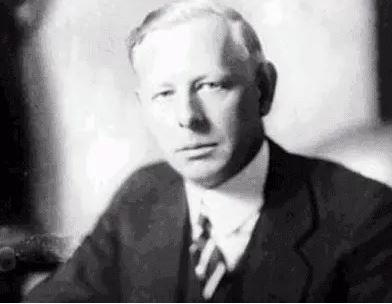“Reminiscences of a Stock Operator,” penned by Edwin Lefèvre in 1923, chronicles the life and experiences of the iconic trader, Jesse Livermore. This book has secured its position in the annals of financial literature as an invaluable resource for traders worldwide. What makes this nearly century-old text a coveted read for today’s market practitioners? The answer lies in its timeless lessons, insight into human psychology, and the art of speculation.
Universal Trading Principles: One of the primary reasons “Reminiscences of a Stock Operator” has persisted as an essential read is its distillation of fundamental trading principles. Livermore’s experiences shed light on themes such as the value of patience, the danger of overtrading, and the significance of letting profits run while cutting losses early. Even as trading mechanisms and markets evolve, these foundational principles remain unchanged, making them invaluable for all traders, irrespective of the era they operate in.
Insights into Market Psychology: Beyond the mechanics of trading, the book delves deep into the psychological aspects that influence market participants. Livermore’s narration touches upon the fear, greed, hope, and despair that traders experience. In a world where trading algorithms and quantitative strategies are gaining prominence, understanding human psychology remains crucial. Emotions drive irrational behaviors, and recognizing these patterns can present lucrative opportunities for astute traders.
Autobiographical Anecdotes: Livermore’s life was a roller-coaster of monumental successes and staggering failures. His candid recounts of both his triumphs and missteps serve as practical case studies. They not only make for an engaging read but also provide readers with an opportunity to learn from real-world experiences without enduring the costly mistakes themselves.
Historical Context: While many traders immerse themselves in contemporary analyses and forecasts, understanding the history of markets provides a broader perspective. “Reminiscences of a Stock Operator” paints a vivid picture of the stock markets in the early 20th century, offering readers a chance to draw parallels between past and present market scenarios. By studying historical trends and reactions, traders can better navigate modern markets.
Emphasis on Self-awareness: Livermore’s journey underscores the importance of self-awareness and introspection. He frequently underscores the idea that one’s worst enemy in the markets is oneself. Successful trading, as the book suggests, is as much about personal discipline and self-control as it is about understanding market dynamics.

“Reminiscences of a Stock Operator” has been cited by numerous influential traders and hedge fund managers as a critical piece of literature that has significantly influenced their approach to the markets. Some of these notable figures and their views on the book include:
Paul Tudor Jones: One of the most successful hedge fund managers and traders, Paul Tudor Jones is known to regard “Reminiscences of a Stock Operator” as essential reading. He has been quoted as saying that he reads it every summer. The emphasis the book places on trader psychology and the human elements of speculation resonate with Jones’ belief in the importance of discipline, adaptability, and humility in trading.
William O’Neil: The founder of Investor’s Business Daily and the creator of the CAN SLIM investment strategy, O’Neil has mentioned the book as being foundational in his understanding of the markets. He particularly appreciates the book’s emphasis on learning from one’s mistakes and recognizing the importance of trend-following.
Timothy Sykes: A well-known day trader who specializes in trading penny stocks, Sykes often references “Reminiscences of a Stock Operator” as a must-read for aspiring traders. He emphasizes the timelessness of the book’s lessons, especially its insights into human nature and market psychology.
Ed Seykota: A pioneering systems trader who was prominently featured in Jack Schwager’s “Market Wizards” series, Seykota holds the book in high regard for its deep insights into trend following and the emotional discipline required for trading.
Linda Raschke: A prominent trader with over three decades of experience in the financial markets, Raschke has highlighted “Reminiscences of a Stock Operator” as a text that profoundly influenced her understanding of market behavior and the psychological challenges of trading.
These financial luminaries and their endorsements underscore the lasting impact of “Reminiscences of a Stock Operator.” Their collective acclaim for the book is rooted in its exploration of trading as an intersection of market analysis and human psychology, its emphasis on learning from past mistakes, and its elucidation of the principles of successful speculation.
In conclusion, “Reminiscences of a Stock Operator” stands as a testament to the enduring nature of market dynamics and human psychology. Its lessons, encapsulated in the life of one of history’s most famous traders, offer invaluable insights for traders, both new and seasoned. While trading tools, strategies, and platforms may have evolved dramatically since Livermore’s time, the core challenges and opportunities remain strikingly similar. As such, the book’s teachings continue to resonate, making it a precious read for anyone venturing into the tumultuous world of trading.




